- Home
- Douglas Niles
Fistandantilus Reborn Page 2
Fistandantilus Reborn Read online
Page 2
He shuddered at the thought of ancient Fistandantilus, the lean and wolfish man with the vitality and temperament of a caged feline. Whastryk had seen the hunger so clearly etched in his master’s ageless eyes. The archmage craved something precious and vital from the young men who came to study at his table, to learn from his words. He lusted for their youth and vigor, and from one he would claim his very soul.
Whastryk had felt his master’s hunger himself, had chilled to the knowledge that the elder’s gaze seemed to penetrate to every fiber of his being. The touch of those eyes had been a terrifying sensation, yet strangely exciting and alluring as well.
Even now, as the discharged apprentice hastened away on the forest trail—even now, when he suspected that the chosen one was doomed, would quite possibly be dead before the sun rose on the morrow—Whastryk felt a surge of jealousy, of pure, raw hatred directed at the one who had been selected to remain.
Why had that apprentice, and not Whastryk Kite, been found worthy?
Bitter thoughts raged in the young mage’s mind, and he felt again the familiar resentment, the knowledge that in every aspect of life, his lot was unfairly restricted. Orphaned and abandoned as a boy, he had survived on the rough streets of Xak Tsaroth by his wits and eventually by the knack for magic that had persuaded bigger, stronger thugs to leave him alone. Then Fistandantilus had summoned him to the tower, and Whastryk had seen things he could never have imagined. For his own benefit, he had learned to wield his power, an arcane might that would allow him to master many other men and further the causes of the Order of the Black Robe.
And yet he would have given it up for a chance to stay behind, to share the powerful—and undoubtedly lethal—enchantment of his master’s greatest spell.
Still, the young mage carried a valuable legacy from the Tower of Wayreth. It was not a treasure in his pouch, a value in steel or even in arcane trinkets. It was the knowledge of magic, the memories of his master’s teaching, that he now held in his mind. He was free, and that knowledge would be the key to great power among the world of humankind. Whastryk merely had to choose where he would go and how he would wield that power.
And he also had one memento of his tutelage in the library of Fistandantilus.
The magic-user’s hand settled around the silver vial in his belt pouch, the treasure that his master had given him as a parting gift. The liquid within was clear, and his fingers could sense the unnatural coldness through the smooth metal of the tiny jar. He remembered the solemn sense of ceremony with which Fistandantilus had bestowed the treasure upon him.
And once more he wondered, Why me? The archmage had been secretive on that point, telling his young apprentice to save the potion, retaining it for all the years of his life, unless, at some point, Whastryk Kite was threatened with imminent and seemingly inevitable death. If he drank the potion at such a time, Fistandantilus had declared, then the magical liquid would insure his survival.
A rumble of thunder trembled through the woods, and the black-clad mage paused. The tiny patches of sky visible between the dense canopy of leaves were invariably blue, and the sky had been cloudless when Whastryk had departed the tower barely two hours earlier. When the deep, resonant noise came again, the man knew: This thunder was born of magic, not nature. The source was the tall tower, the spire of sorcery that lay at the heart of Wayreth Forest.
Light flashed, a sparking glow brighter than the sun, penetrating deep among the trees with a cold, white glare. More thunder smashed, and shivers of force rolled through the ground. Whastryk stepped faster now, trotting, then running along the trail. His earlier regrets vanished, washed away by a wave of pure fear that—like the noise and the light—certainly emanated from that distant tower.
Winds lashed through the trees, hot blasts of air that bore none of the moist freshness of a rainstorm. Instead, this was a stinking, sulfurous gale, a wash of putrid breath that pushed him even faster along the trail. Lightning crackled with growing violence, and he shuddered under a clear impression that the sky itself screamed in raw horror. He heard a clatter, then felt a sharp stab of pain against his shoulder as black hailstones rattled through the trees, bouncing and cracking against the ground.
And then he was sprinting like the wind, driven by the force of his own terror. Branches lashed his face, and unnatural gusts tore at his hair, whipped his robe. It seemed that the two magic-users behind him, the tower, the woods, and the very world itself were being torn to pieces. If he slowed even a half pace from his full run, Whastryk sensed that the destruction would extend even to himself.
Finally the woods were gone. Wayreth Forest vanished into the mists over his shoulder, a place of his past. He was surprised to learn, at the first village he came to, that he was in the foothills of the Kharolis Mountains. After all, the magical forest had grown outside the great trading city of Xak Tsaroth when Whastryk had first encountered it. But he had heard that was the way of the enchanted wood. The worthy traveler did not find Wayreth Forest, so much as Wayreth Forest found the worthy traveler.
Now he saw no sign of the woods behind him, and the young mage thought it was good to be removed from the place. He set his sights upon the future, sensing that he would never see that forest again—and the knowledge was more a relief than a fear.
Chapter 3
Ends and Conclusions
In the Name of His Excellency Astinus, Lorekeeper of Krynn
Notes Pertaining to events 2 PC-1 PC
Scribed this Fourth Misham, Deepkolt, 369 AC
I have regrettably concluded that, for the most part, the tale of Whastryk Kite is the story of a relatively unremarkable life. He left the Tower of Wayreth and made his way to Haven. (It should be noted that in this he was fortunate; several of the other apprentices who departed at the same time as Whastryk journeyed to Xak Tsaroth and Istar; naturally they perished at either site during the Cataclysm. Apparently Whastryk Kite had better instincts—or information.)
In any event, upon entering the city of Haven, Whastryk took up residence there and prepared to put his magic to use. He established himself with the name of the Black Kite and immediately started building a reputation as a sorcerer to be feared—and one who was willing to perform services, for the right buyer at an adequate price.
Within a short time, of course, Krynn was rocked by the Cataclysm. Haven was spared much of the damage that befell other regions of Ansalon; in fact, the good fortune caused the city to swell with immigrants fleeing from regions that had been sorely wracked.
Never a godly place, Haven eventually became rife with the Seeker priests, purveyors of false religions who pronounced their doctrines on every street corner in the teeming city. However, immediately after the Cataclysm, conditions were terribly unsettled. He who had such power and wielded it to his advantage would be able to gain great influence.
Over the years, the Black Kite became well known in Haven as one who not only had such power, but was also willing to employ that power to serve his own ends. His services were used by brigands and warlords, by jilted lovers and jealous wives. Some of the city’s most powerful nobles paid him handsomely, for no service other than that he left them alone—and that the rich folk could let it be known that the dark wizard was an acquaintance of theirs, if not a true friend.
Whastryk Kite modeled himself after his master, and the calling of the Dark Mage suited him. Of course, he was never to be as powerful as Fistandantilus, but he was able to wield great influence in the relatively isolated orbit of post-Cataclysmic Haven.
Fortunately the wizard left some rather extensive notes and records regarding those years. I have studied them and reached firm conclusions:
Firstly, Whastryk Kite heard only rumors of the fate befalling the wizard Fistandantilus, his former master. It was said that the archmage had been in Istar when the wrath of the gods smote the world. Since there were no reports of his presence anywhere in Ansalon, Whastryk—and the rest of the world—made the not illogical assumption that
he had been killed.
For Whastryk, it was enough to be his own master. Even more, he became one of the foremost black-robed magic-users of post-Cataclysmic Krynn. Of Fistandantilus he thought only rarely, most often when he held the small silver vial that had been the wizard’s parting gift. It is clear from his notes that he did not know what the potion was for; nevertheless, he kept it ready. Occasionally he would examine the clear liquid, sensing its deep enchantment, its abiding might. He always carried it on his person, holding it for the time when he feared that his death might be at hand.
In the later years of his life, Whastryk became the target of many an ambitious hero. These were people who had come to hate the wizard for wrongs he had inflicted, directly or indirectly. Some were bold knights acting alone, while others were bands of simple folk anxious to avenge an evil deed. At least one was a woman, daughter of a merchant Whastryk had destroyed for his failure to offer the mage proper respect.
All of these attackers were killed, usually with great quickness and violence as soon as they passed through the arched entry into the wizard’s courtyard. He developed a tactic effective not only for its deadliness, but also for the sense of terror it instilled in potential enemies. Whastryk would cast a spell from his eyes, twin blasts of energy that would strike the victim in the same place, tearing the orbs of vision from his flesh and leaving gory, gaping wounds. Such blinded enemies, if they still presented a threat, were very easy to kill.
The notes reveal in graphic detail that some of the wizard’s foes—including the bold, doomed heroine—were only slain following a long period of imprisonment and tortures of mental, physical, and spiritual assault. (Indeed, the details of this suffering may cause even the dispassionate chronicler to weep with sorrow for the victims.)
By this time, the wizard exerted his control over a very significant part of the city—a region that included many prosperous shops and approximately one quarter of Haven’s entire area. It was an area ruled by evil, selfishness, and greed, but it was also a place of one undisputed master. Whastryk collected a great deal of money from those within his orbit, and he commanded the obedience of a great many sword arms.
By thirty years after the Cataclysm, the theocrats were beginning to lay their claims to official rulership of Haven, and Whastryk did nothing to usurp their authority in a visible or ostentatious fashion. Indeed, it is known that he performed many favors, including assassinations, magical disguises, and surreptitious reconnaissance, for the powerful Seeker priests. No doubt the underhanded use of magic served to awe the populace and enhanced the authority of the corrupt theocrats and their false gods.
And always the wizard’s power grew, and his influence spread wide across the world—until, in 37 AC, his writings abruptly ceased.
Though this might be regarded as occurring at the height of Whastryk’s influence and power, a careful study of the records arrives at a different conclusion. Indeed, I have discerned that, during the five or six years preceding (say, from 31 AC on), the notations of Whastryk increasingly indicate the effects of advancing age. I see a hint of palsy creeping into what had once been a steady hand, and the last volume of records is shoddily kept, at least in comparison to Whastryk’s early notes. Eventually, with no reason given, the notes cease altogether.
Perhaps boredom simply caused the mage to lose interest in his record keeping (a historian’s worst nightmare!), or perhaps he met some kind of sudden end that has been lost to the history books. Furthermore, though I have pored over the records from Haven during that and subsequent periods, I have found no mention of the silver vial given to Whastryk by Fistandantilus. Whatever the archmage’s purposes with that uncharacteristic gift, it seems conclusive that those purposes were thwarted. The vial and its contents, like the life of Whastryk itself, were brought to a terminus in that chaotic city.
Perhaps I shall get to Haven some day to pursue the matter; until then, it seems that there is nothing more to learn.
Foryth Teel,
In Research for the Scale of Gilean
Chapter 4
An Unlikely Hero
37 AC
Third Miranor
On the way home from the smithy, Paulus Thwait turned as he always did into the street where he lived. It was more of an alley, he was inclined to admit in moments of honesty, but—more important to him than any outward appearance of status or grandeur—it led the way to the place that he called home.
A smile played across his face, brightening the young man’s normally intense features as he thought of the wife and baby awaiting him a hundred steps away. He ignored the close quarters of the taverns and tenements pressing from each side, the squalor of Haven that was so rank around him, and allowed his step to be buoyed by the thought of the cramped rooms that would be warm and aromatic from the cookstove, and by the knowledge that his family would be there, waiting.
It was strange to feel so happy, he thought, remembering that a few years earlier he would have guessed such a life to be as removed from his future as a visit to the farthest of Krynn’s three moons. Indeed, how easily he could have fallen into a life of thuggery, playing the role of one of the Black Kite’s bullies as so many young men of Haven did. After all, Paulus had proved that he was strong and brave, and keen and steady with his blade. And he had a temper that insured his fighting skills stayed in good practice.
Yet he had talent with his hands and eyes as well, talent that had been recognized by one of the city’s premier silversmiths. That artisan, Revrius Frank, had taken the young man as an apprentice, allowed Paulus Thwait’s talent to grow through the working of an honest trade.
The brawny apprentice had progressed to journeyman in a surprisingly short time, and lately Revrius had slyly hinted that he would soon have competition in this city quarter from another master silversmith. Now, making his way home at the end of a long, hard day of work, Paulus felt a flush of pride at the notion, and his pride swelled into a detemination that tomorrow he would do an even better job with his metal and his tools.
But even beyond the gratification of his developing craft, the young silversmith had the best reason of all to be happy. It had been nearly two years ago that a caravan of settlers had come through the city, on their way to the good farming country reputed to exist to the south, in Kharolis. Belinda Mayliss, the daughter of one such farmer, had immediately caught the tradesman’s eye, an attraction that swiftly proved mutual. The two had been married before Belinda’s family had moved on, and now his bride—and, recently, their young, husky baby boy—had given Paulus all the reason he could hope for to work hard, do well, and be happy.
In the quarter of Haven where Revrius Frank maintained his smithy, Paulus was already developing a reputation as a man who could be trusted to perform skilled work. Indeed, for the last week he had been working on his most elaborate project to date: a silver mirror of perfect reflectivity, a sheet of metal hammered thin so as to be easily transportable, in a frame that would be highly pleasing to the eye. Tomorrow he would put the final polish on the piece, which had been commissioned by the most successful garment maker in Haven.
It is safe to presume that, as he walked home this pleasant spring evening, Paulus Thwait had no inkling of the role he would play as a small but influential mote in the current that makes up the River of Time.
He moved easily up the lane, stepping over the refuse that was scattered in the gutters, skirting the elder hermit who snored noisily, as he did every afternoon, on a small patch of greening grass. Close now, Paulus caught the scents of garlic and pepper, and knew his young wife had found the ingredients for a marvelous stew. The silversmith’s stomach growled loudly as he clumped up the steps that led to the narrow balcony outside of their humble lodgings.
“That fat horse merchant tipped me two steel pieces for my work on his bridle,” he announced as he burst through the door. Belinda, the babe in her arms, rushed across the room to him, startling Paulus with a gasp of relief as she threw herself against hi
s chest.
Only then did he notice the mysterious figure across the room, in the corner farthest from the fire. It resembled a man cloaked completely in rags of dark cloth, but as he looked closer, Paulus felt a shiver of disquiet. Though the stranger seemed to stand upright, its lower reaches vanished into tendrils of mist! It had no legs, nor did it seem to be supported in any way on the floor.
“It came here a moment ago!” Belinda declared in a rush of fright. “Just appeared—in the corner, where it is now.”
“Did it harm you? Threaten you?” His voice choked as Paulus looked at the thing, fear and fury mingling in his emotions.
“No, nor young Dany. It just stayed there, as if it’s waiting for something.”
Paulus was a brave man, but he knew that it was only sensible to fear magic and the supernatural, both of which seemed well represented by the disembodied figure that now swirled threateningly toward the middle of the tiny room. But this was his home, and that knowledge brought courage and determination to the fore.
“What do you want?” the silversmith demanded in a voice thick with anger. All his brawler’s past came flooding back, and he crouched, fists clenching at his side.
“Two steel pieces will be an adequate start,” hissed the stranger in a voice that reminded the silversmith of water rolling at a steady boil.
“Why should I pay you?”
“Because you wish to live, to see your family survive, and to ply your trade in my city.”
“I am doing all that now.” With great effort, the smith restrained himself from striking the apparition.
“Ah, but for how long? That is the question every mortal dreads to answer, is it not?”
“Go away. Leave my home!”
“I will take the steel for now,” insisted the ghostly interloper.

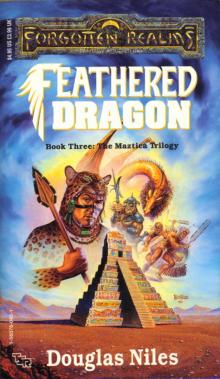 Feathered Dragon mt-3
Feathered Dragon mt-3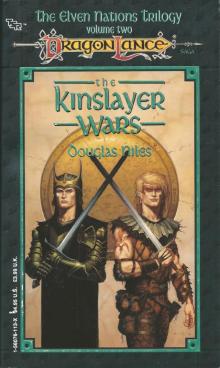 The Kinslayer Wars
The Kinslayer Wars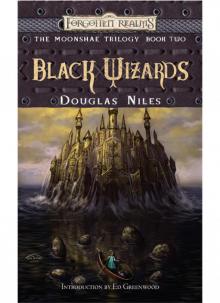 Black Wizards
Black Wizards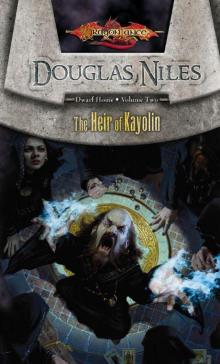 The Heir of Kayolin dh-2
The Heir of Kayolin dh-2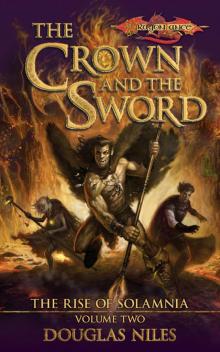 The Crown and the Sword tros-2
The Crown and the Sword tros-2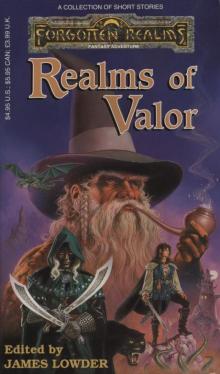 Realms of Valor a-1
Realms of Valor a-1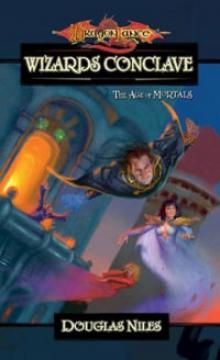 Wizards Conclave aom-5
Wizards Conclave aom-5 Fox On The Rhine
Fox On The Rhine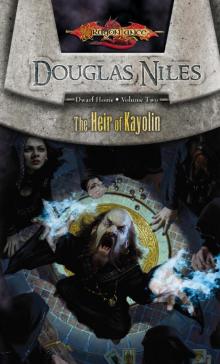 The Heir of Kayolin
The Heir of Kayolin Fox at the Front (Fox on the Rhine)
Fox at the Front (Fox on the Rhine)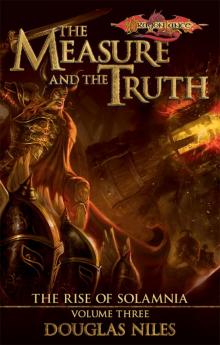 Measure and the Truth tros-3
Measure and the Truth tros-3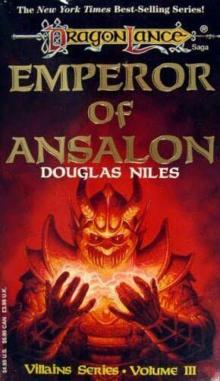 Emperor of Ansalon (d-3)
Emperor of Ansalon (d-3)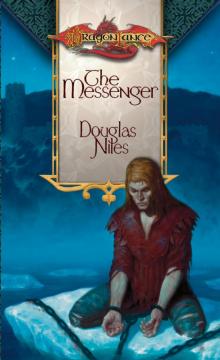 The Messenger it-1
The Messenger it-1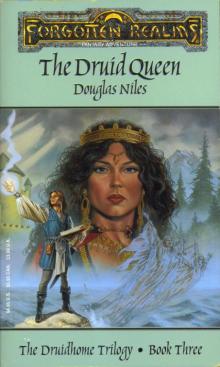 The Druid Queen tdt-3
The Druid Queen tdt-3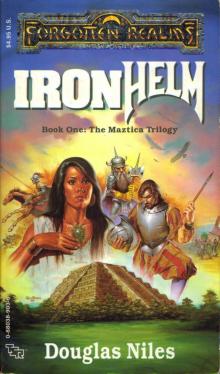 Ironhelm mt-1
Ironhelm mt-1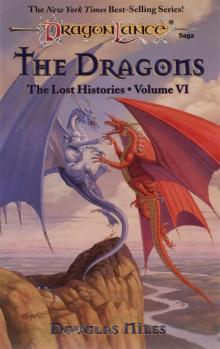 The Dragons lh-6
The Dragons lh-6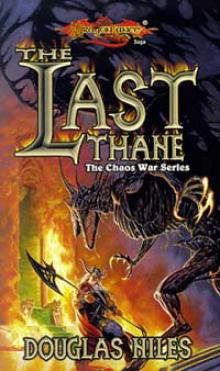 The Last Thane cw-1
The Last Thane cw-1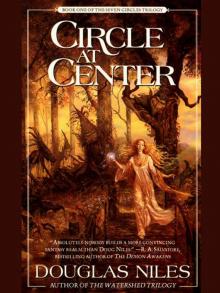 Circle at center sc-1
Circle at center sc-1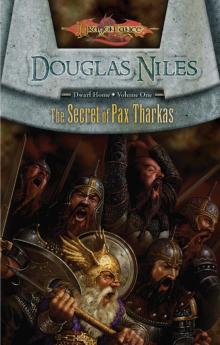 Secret of Pax Tharkas dh-1
Secret of Pax Tharkas dh-1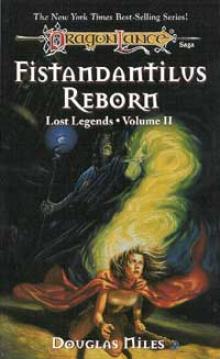 Fistanadantilus Reborn ll-2
Fistanadantilus Reborn ll-2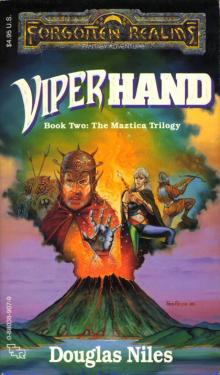 Viperhand mt-2
Viperhand mt-2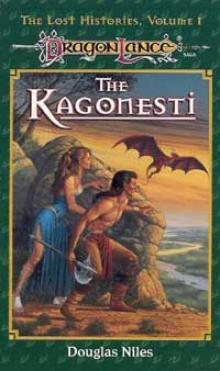 Kagonesti lh-1
Kagonesti lh-1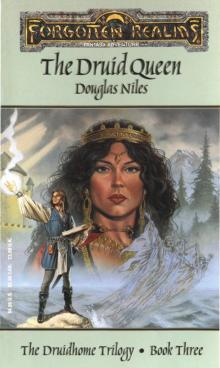 The Druid Queen
The Druid Queen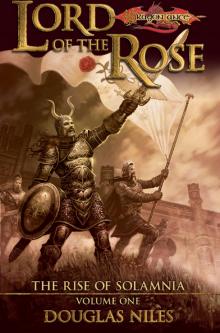 Lord of the Rose tros-1
Lord of the Rose tros-1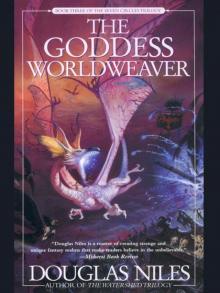 Goddess Worldweaver sc-3
Goddess Worldweaver sc-3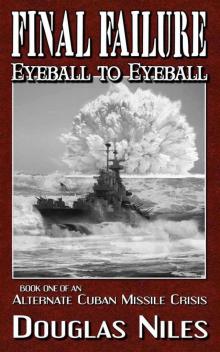 Eyeball to Eyeball (Final Failure)
Eyeball to Eyeball (Final Failure)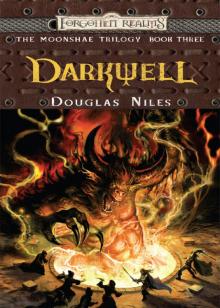 Darkwell
Darkwell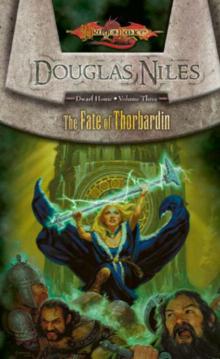 Fate of Thorbardin dh-3
Fate of Thorbardin dh-3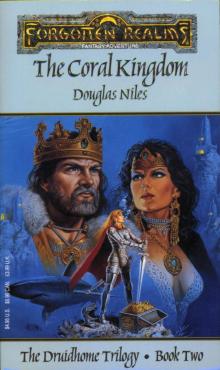 The Coral Kingdom tdt-2
The Coral Kingdom tdt-2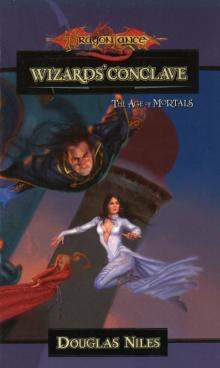 Wizard's Conclave
Wizard's Conclave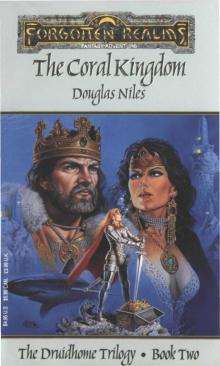 The Coral Kingdom
The Coral Kingdom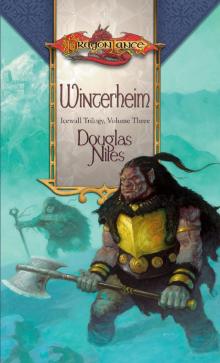 Winterheim it-3
Winterheim it-3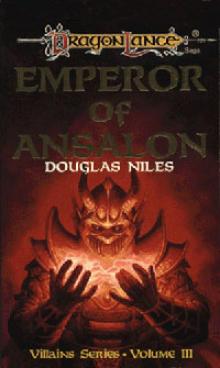 Emperor of Ansalon v-3
Emperor of Ansalon v-3 MacArthur's War: A Novel of the Invasion of Japan
MacArthur's War: A Novel of the Invasion of Japan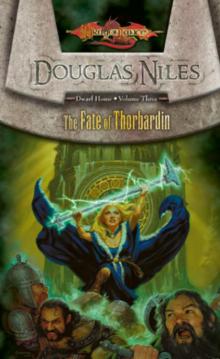 The Fate of Thorbardin
The Fate of Thorbardin The Rod of Seven Parts
The Rod of Seven Parts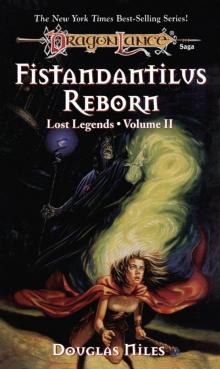 Fistandantilus Reborn
Fistandantilus Reborn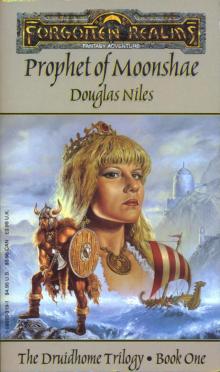 Prophet of Moonshae tdt-1
Prophet of Moonshae tdt-1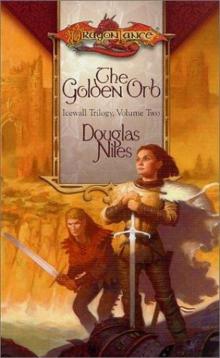 The Golden Orb i-2
The Golden Orb i-2